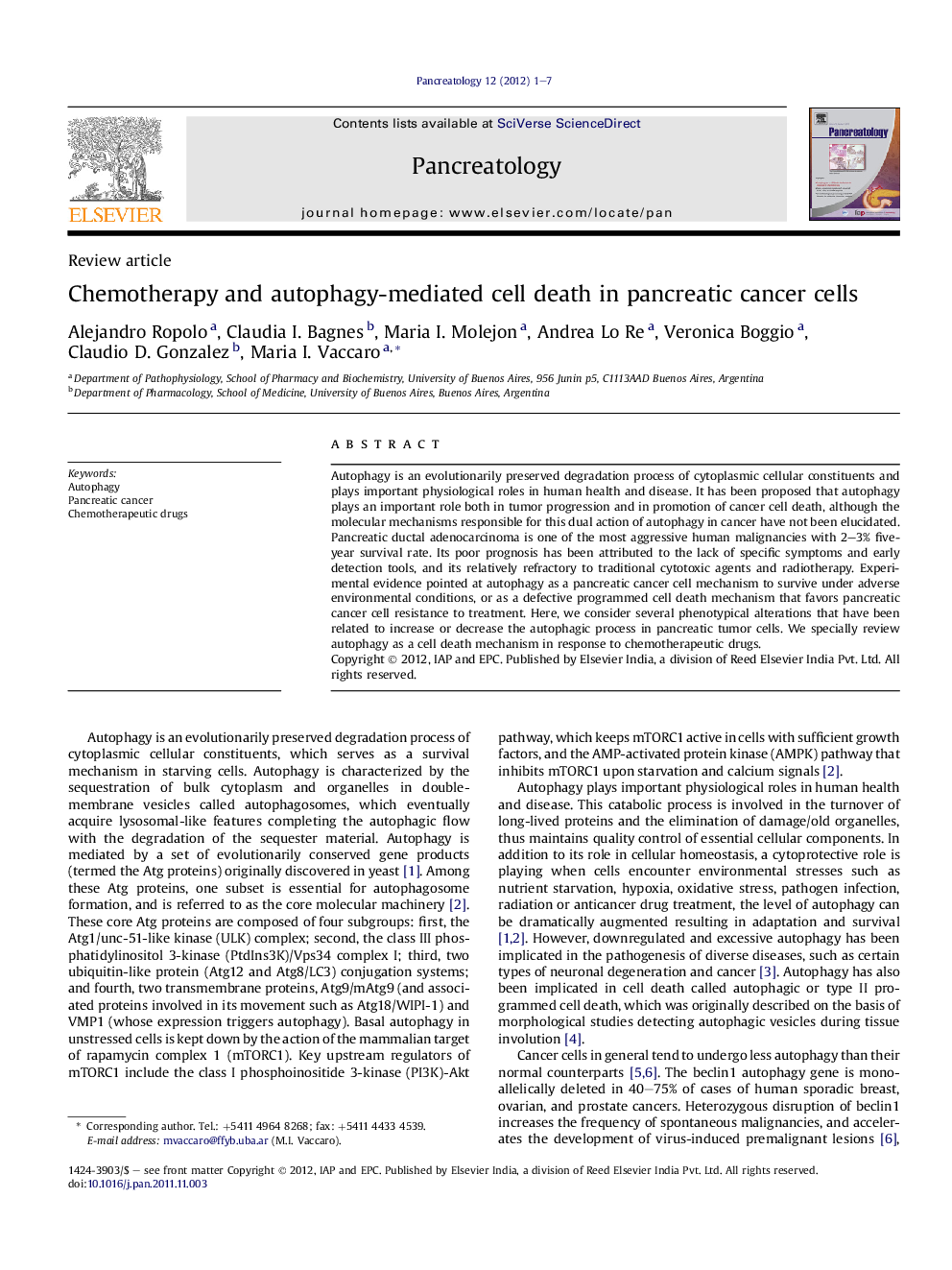| Article ID | Journal | Published Year | Pages | File Type |
|---|---|---|---|---|
| 3318057 | Pancreatology | 2012 | 7 Pages |
Abstract
Autophagy is an evolutionarily preserved degradation process of cytoplasmic cellular constituents and plays important physiological roles in human health and disease. It has been proposed that autophagy plays an important role both in tumor progression and in promotion of cancer cell death, although the molecular mechanisms responsible for this dual action of autophagy in cancer have not been elucidated. Pancreatic ductal adenocarcinoma is one of the most aggressive human malignancies with 2-3% five-year survival rate. Its poor prognosis has been attributed to the lack of specific symptoms and early detection tools, and its relatively refractory to traditional cytotoxic agents and radiotherapy. Experimental evidence pointed at autophagy as a pancreatic cancer cell mechanism to survive under adverse environmental conditions, or as a defective programmed cell death mechanism that favors pancreatic cancer cell resistance to treatment. Here, we consider several phenotypical alterations that have been related to increase or decrease the autophagic process in pancreatic tumor cells. We specially review autophagy as a cell death mechanism in response to chemotherapeutic drugs.
Related Topics
Health Sciences
Medicine and Dentistry
Gastroenterology
Authors
Alejandro Ropolo, Claudia I. Bagnes, Maria I. Molejon, Andrea Lo Re, Veronica Boggio, Claudio D. Gonzalez, Maria I. Vaccaro,
